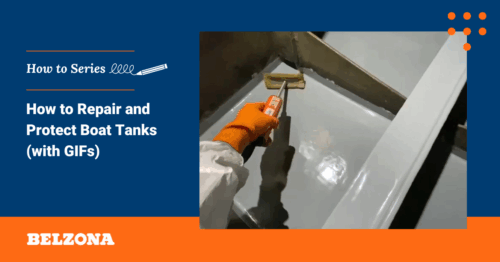An abrasion resistant coating is essential for protecting industrial equipment exposed to harsh conditions. In sectors like mining, pulp and paper, and wastewater treatment, surfaces face constant wear from abrasive materials such as rocks, sludge, and slurry. Applying the right abrasion resistant material helps extend equipment life, reduce downtime, and lower maintenance costs. This guide explains the causes of abrasive wear and erosion and shows you how to apply an abrasion resistant solution.
What is Abrasion?
The word abrasion comes from the Latin “abradere” which means “to scrape away, shave off”.In industrial settings, abrasive wear refers to surface damage caused by friction or impact with hard particles, such as rocks, sludge, or sand. Left unaddressed, this can significantly reduce the service life of industrial equipment.
Implementing wear-resistant coatings or linings tailored to these variables helps protect assets in aggressive environments. For example, in mining, pipeline wear protection is critical due to the continuous flow of abrasive slurry, which rapidly degrades unprotected surfaces. Selecting the right abrasion resistant coating for steel can make the difference between unplanned downtime and reliable performance.
What is the Difference Between Erosion and Abrasion?
It is important to understand the correlation between erosion and abrasion.
Erosion is defined by ASTM as “damage to a solid surface, generally involving progressive loss of material, caused by the relative motion between the surface and a contacting substance or substances”. In most instances, the material removal is a gradual process. Several factors influence erosion:
- Particle size and shape
- Angle of impact
- Velocity
- Concentration
- Temperature
Essentially, abrasion is the mechanical action causing immediate surface damage, whereas erosion describes the ongoing process of material loss due to repeated contact and impact.
Belzona Abrasion Resistant Coatings
In our previous blog post “Pulp and Paper: 4 Key Maintenance Areas”, we spoke about various repair and protection methods, including creating comprehensive abrasion-resistant systems. Due to highly destructive nature of erosion and abrasion, the repair process often requires a multi-step procedure.
In this post we will demonstrate how to apply an abrasion resistant system. Here are the wear resistant materials used:

Belzona 1311 (Ceramic R-Metal)
Belzona 1311, a ceramic epoxy-based composite for metal repair and erosion-corrosion protection, was used to rebuild the profile of the repair area.
Belzona 5821
Belzona 5821, a wear resistant coating, for this application it was used as a bonding agent and applied prior to the application of alumina tiles.
Belzona 9811
Belzona 9811 – alumina tiles made from superfine, micro-crystal aluminum oxide used to create a hard wearing abrasion-resistant lining.
Belzona 1812
Belzona 1812, an abrasion resistant lining, was used to repair and act as a wear lining for metal surfaces, was used as a grouting material for encapsulating the tiles.
These abrasion resistant materials work together to form a durable, impact-resistant coating system.
Video: How to Create an Abrasion Resistant System with Belzona
Step-by-Step Guide: How to Create an Abrasion Resistant System with Belzona
FAQs
What is the best abrasion resistant material for steel in aggressive environments?
For steel substrates exposed to high wear and impact, a system like Belzona 1311 (Ceramic R-Metal) combined with Belzona 9811 tiles and Belzona 1812 (Ceramic Carbide FP) grout offers long-term protection and superior abrasion protection.
Can ceramic polymer coatings be used in high-solid environments?
Yes, ceramic epoxy coatings like Belzona 5821 are specifically designed to handle high-solid content environments like slurry tanks and chutes, resisting both impact and sliding abrasion
Where can I buy an abrasion resistant coating?
Visit the Distributor Finder page on Belzona’s website and use the contact details provided to purchase Belzona’s abrasion resistant solutions.
Learn More
- Watch: How to Repair an Abrasion Resistant Lining with Belzona
- Mining & Quarrying: Belzona’s Top 5 Application Areas
- How to Repair Conveyor Belts with Belzona Elastomeric Polymers
Contact Your Local Distributor to Learn More About How to Repair and Protect Boat Tanks
Yulia Burova, Marketing Director, Belzona Inc., Miami FL, USA











